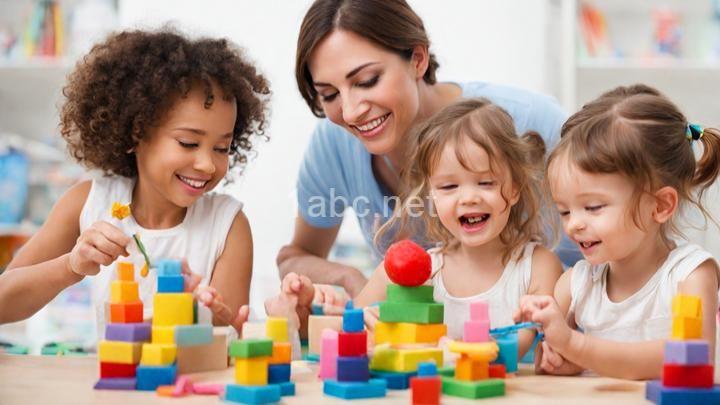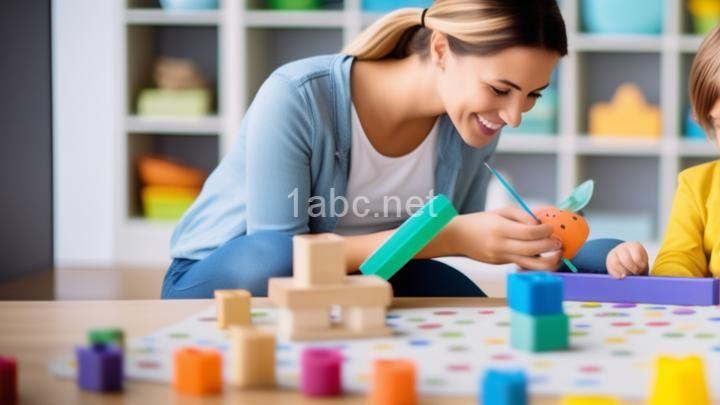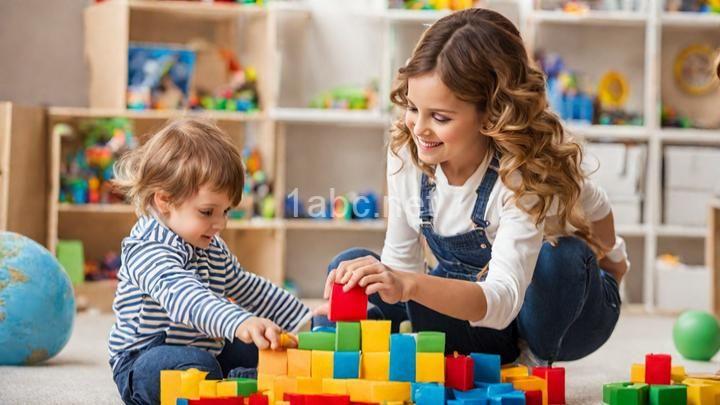The Importance of Establishing a Daily Routine for Your Family Child Care

Introduction:
Welcome to our blog, where we'll explore the significance of establishing a daily routine for your family child care! As caregivers, we understand that providing a stable and nurturing environment for children is essential for their overall development. In this article, we will discuss the benefits of having a structured routine, offer practical tips on creating a consistent schedule, highlight the importance of incorporating learning opportunities and promoting healthy habits, address transitions and changes, and stress the importance of involving parents in the process. By implementing a daily routine, you'll create an environment that supports your family child care's growth and development.
I. Understanding the Benefits of a Daily Routine:
Having a structured daily routine offers numerous advantages for children in family child care. Firstly, routines provide a sense of security and stability. Children thrive in an environment where they know what to expect, as it helps them feel safe and confident. Secondly, routines foster healthy habits. By establishing regular meal times, playtime, learning sessions, and rest periods, children develop healthy habits that contribute to their overall well-being. Lastly, routines support overall development. Consistency in activities such as reading, physical play, and creative exploration promotes cognitive, physical, and emotional development.
II. Creating a Consistent Schedule:
Creating a consistent schedule is crucial for maintaining a structured daily routine. It is important to consider various activities such as meals, playtime, learning sessions, nap time, and outdoor time. Consistency allows children to anticipate and understand the daily flow of events. To create an age-appropriate and flexible routine, consider factors such as the children's ages, individual needs, and caregivers' preferences. Be open to adjustments and modifications as needed, keeping in mind that every child is unique and may require a slightly different schedule.
III. Incorporating Learning Opportunities:
Integrating educational activities into the daily routine is essential for children's cognitive development. Whether it's reading books, engaging in sensory play, or participating in age-appropriate learning activities, there are numerous ways to make learning fun and engaging. Consider allocating specific time slots for focused learning sessions, where children can explore new concepts, develop critical thinking skills, and expand their knowledge.
IV. Promoting Healthy Habits:
Establishing healthy habits within the daily routine is crucial for children's overall well-being. Encourage proper nutrition by incorporating balanced meals and snacks, and involving children in the meal preparation process. Promote physical activity by allocating time for outdoor play or indoor gross motor activities. Teach children about personal hygiene and the importance of handwashing. Lastly, ensure that children have adequate rest by incorporating nap time or quiet time into the daily routine.
V. Addressing Transitions and Changes:
Transitions and changes are inevitable in family child care settings, whether it's a new child joining the group or unexpected disruptions to the routine. It is important to help children adapt to these changes while maintaining a sense of stability. Communicate with children about upcoming changes, provide reassurance and support, and gradually introduce new routines or modifications. Consistency and clear communication can help ease the transition process and minimize any potential disruptions.
VI. Involving Parents:
Collaboration between caregivers and parents is vital in establishing and maintaining a consistent routine. It is important to involve parents in decision-making processes regarding their child's schedule. Regular communication, such as daily updates, newsletters, or parent-teacher conferences, can help ensure that parents are informed and included in their child's daily activities. Additionally, encourage parents to share their insights and suggestions, as they know their child best.
Conclusion:
Establishing a daily routine for your family child care takes time and flexibility. By providing a structured schedule, you create an environment that supports children's growth and development. Remember to consider the benefits of routines, create a consistent schedule, incorporate learning opportunities, promote healthy habits, address transitions and changes, and involve parents in the process. Reflect on your current routines and make necessary adjustments to provide a stable and nurturing environment for the children in your care. Happy caregiving!
FREQUENTLY ASKED QUESTIONS
Why is establishing a daily routine important for family child care?
Establishing a daily routine is crucial for family child care for several reasons. Firstly, it provides a sense of structure and predictability for both the children and the caregiver. Children thrive in an environment that is consistent and familiar, as it helps them feel secure and know what to expect. Secondly, a daily routine helps to promote a sense of order and organization, making it easier for the caregiver to plan and manage their day effectively. This can include designated times for meals, naptime, learning activities, outdoor play, and other essential aspects of a child's day. Thirdly, a routine helps to establish healthy habits and teach children important life skills, such as personal hygiene, tidying up, and time management. By following a set schedule, children learn the value of routines and develop independence in managing their own tasks. Lastly, a daily routine can also contribute to the development of positive behaviors and social skills. Consistent routines provide opportunities for children to practice self-regulation, cooperation, and problem-solving, which are essential for their emotional and social development. Overall, establishing a daily routine in family child care is essential for creating a nurturing and enriching environment that supports the well-being and growth of the children.
How can a daily routine benefit both the children and the caregivers in a family child care setting?
A daily routine can greatly benefit both the children and the caregivers in a family child care setting. For children, having a consistent routine provides a sense of stability and predictability, which can help them feel secure and comfortable in their environment. It allows them to know what to expect throughout the day, reducing anxiety and promoting a sense of control.A routine also supports the development of important life skills, such as time management, organization, and self-discipline. By following a daily schedule, children learn the importance of completing tasks and responsibilities within a given timeframe, which can be carried over into their future endeavors.
Furthermore, a structured routine promotes learning and cognitive development. It allows caregivers to plan and incorporate various activities into the day, ensuring a balance between playtime, learning activities, meals, rest, and other necessary tasks. This promotes a well-rounded educational experience for the children, fostering their intellectual growth while keeping them engaged and stimulated.
For caregivers, a daily routine provides a framework for managing their responsibilities effectively. It helps them prioritize tasks and allocate their time and resources efficiently. Having a set schedule allows caregivers to plan ahead, ensuring that they can meet the needs of each child in their care while also attending to their own personal and professional commitments.
Additionally, a routine can help caregivers maintain their own well-being. It provides a sense of structure and order, reducing stress and promoting a positive work-life balance. By having a predictable routine, caregivers can better manage their time, allowing for breaks, self-care, and opportunities to recharge.
In summary, a daily routine benefits both children and caregivers in a family child care setting. For children, it provides stability, promotes the development of important life skills, and supports their learning and cognitive growth. For caregivers, it helps manage responsibilities effectively, maintain well-being, and create a positive work-life balance.
What are some key elements to consider when creating a daily routine for family child care?
When creating a daily routine for family child care, there are several key elements to consider. First and foremost, it's important to establish a consistent schedule. This helps children feel secure and provides them with a sense of predictability. Make sure to include designated times for meals, naps, playtime, and learning activities.
Secondly, consider the age and developmental needs of the children in your care. Each child is unique, so tailor your routine to accommodate their specific needs. For example, younger children may require more frequent naps, while older children may benefit from structured learning activities.
In addition, take into account the individual interests and preferences of the children. Incorporate activities and experiences that align with their interests, as this will enhance their engagement and enjoyment.
Furthermore, ensure that your routine allows for a balance between active and quiet activities. Children need opportunities for both physical play and quiet time to rest and recharge.
Don't forget to include time for outdoor play. Outdoor play promotes physical development, creativity, and a connection with nature. Whether it's a backyard or a nearby park, providing a safe and stimulating outdoor environment is crucial.
Lastly, be flexible and adaptable. Children's needs and interests may change over time, so be open to adjusting your routine as necessary. Regularly assess how the routine is working and make any necessary modifications.
By considering these key elements, you can create a daily routine for family child care that is structured, engaging, and tailored to the needs of the children in your care.
How can I effectively communicate and implement the daily routine with the children in my care?
To effectively communicate and implement a daily routine with the children in your care, there are a few key strategies you can use. These techniques will help you create a structured and engaging environment for the children, while also fostering open communication and cooperation.
Establish a clear schedule: Start by creating a daily routine that includes specific times for meals, playtime, learning activities, and rest. Display the schedule in a visible location so that the children can easily refer to it throughout the day. This will help them understand what to expect and provide a sense of stability.
Use visual aids: Visual aids like charts, pictures, or symbols can be helpful for young children who may not be able to read yet. For example, you can create a picture schedule that shows the different activities and their order. This visual representation can make it easier for children to understand and follow the routine.
Communicate expectations: Clearly communicate the expectations for behavior and participation during each activity. Use simple and age-appropriate language to explain what is expected of the children. For example, before starting a group activity, you can say, "During this activity, we will take turns and listen to each other."
Give choices: Offering choices within the routine can empower children and make them feel more involved. For instance, you can let them choose between two different activities during playtime or give them options for snack time. This helps them develop decision-making skills and promotes their sense of autonomy.
Use positive reinforcement: Recognize and praise the children when they follow the routine or display positive behavior. Positive reinforcement can be as simple as saying, "Great job sharing your toys!" or giving a sticker for completing a task. This encourages children to continue following the routine and reinforces positive behavior.
Be flexible: While routines are important, it's also essential to be flexible and responsive to the children's needs. Be open to making adjustments if necessary. For example, if a child is having difficulty transitioning between activities, offer additional support or adapt the routine to better accommodate their needs.
Remember, effective communication and implementation of a daily routine require patience, consistency, and a nurturing approach. By using these strategies, you can create a positive and structured environment where children feel supported and engaged.




